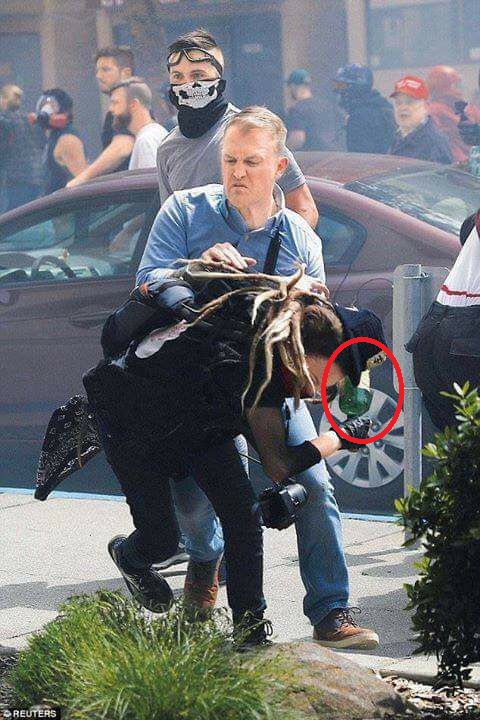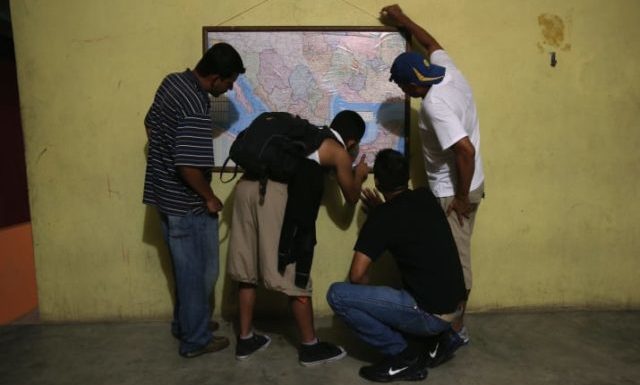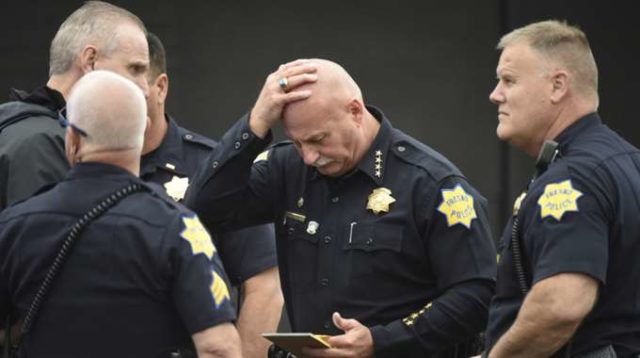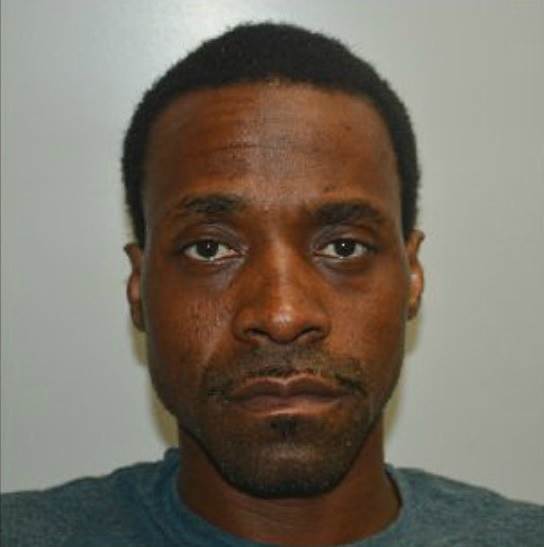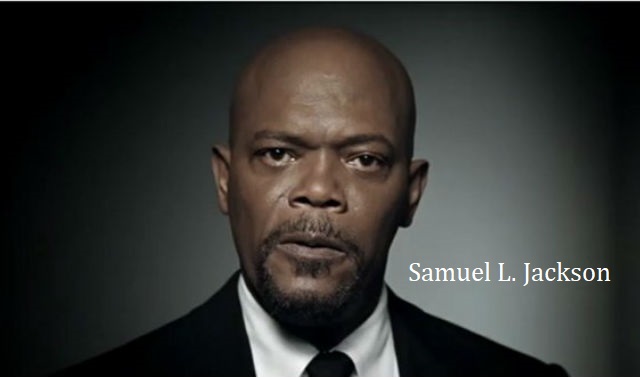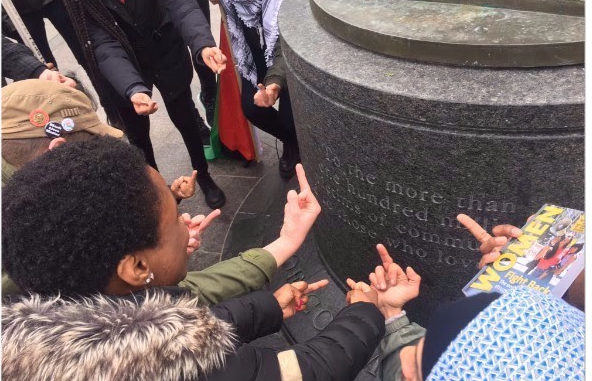French Presidential Campaign: Partie 3
Part 1 can be found here – click.
Part 2 can be found here – click.
The outstretched hand
The hagadah that is read during the pesach [Passover] seder is an intensely concentrated treatise on the subject of freedom. Something similar is happening in France today. The issues are dramatized by reality, realities that were deliberately kept out of sight have suddenly burst into the discourse and cannot be ignored. An intense concentrate of the issues that have been playing out since the end of September 2000* will reach a conclusion on the night of 23-24 April 2017 when the votes are counted and we will know what French citizens have decided to do about jihad conquest. The future of Europe, of the free world hangs in the balance. [* see my latest release, Troubled Dawn of the 21st Century]
Back then, deaf to the alarms of anti-Jewish violence triggered by the al Dura blood libel, French society stumbled from willful blindness to cozy antizionism until the rude awakening of the Charlie Hebdo executions, followed by the November 13th, 2015 mass jihad murders. Again, today, the murder of a 67 year-old Jewish woman thrown out the window like a piece of garbage by her Muslim neighbor did not move the media or intrude on a presidential campaign that keeps veering away from the crucial issue of survival.
And now, 18 April, a thunderbolt strikes: Mahiedine Merabet and Clément Baur are arrested in Marseille, suspected of preparing an imminent jihad attack on “the campaign.” They had the full kit: ski masks, Koranic verses, a go-pro camera, explosives, nuts and bolts, loaded assault weapons, and a hunting knife for good measure. British intelligence detected their allegiance to Daesh video and informed French authorities. François Fillon is the designated target, “talion law” is spelled out in bullets, and photos of Muslim children killed in bombings are displayed as justification. Mujahidin do not attack civilians…except in retaliation for crimes committed against Muslims.
Four days before the close of the campaign, Islamic totalitarianism pounces on us like a man-eating tiger on a forest path. Doesn’t that change everything? The danger to our democracy is not the employment of family members as parliamentary assistants! Two men of French nationality, one born into Islam, the other a convert, two lowlifes of no particular dimension, two flagged security risks like thousands of others, could have assassinated one of the four leading candidates and an untold number of supporters. Two common ordinary men loyal to the caliphate could have derailed the democratic process. A little monkey wrench thrown into the mechanism brings it to a halt.
The suspects had been under surveillance since December when a search of Mahediene’s apartment near Roubaix (permitted under the state of emergency statutes) had unearthed a Daesh flag, jihad propaganda, and a young man who gave a false name and turns out to be 23 year-old Clément Baur, reportedly converted to Islam by Chechens living in Nice, known to have contacts with jihad cells in Belgium. Mahediene, theoretically placed under house arrest, was already on the run. On the 1st of April the plotters went south, sublet a bed sitter in Marseille, and cooked up a storm of TATP.
It seems obvious to me that the nipped in the bud attack will change the outcome this Sunday. Most French journalists and commentators apparently disagree. We shall see.
Murder in Belleville
Further information has emerged about the anti-Semitic murder of Sarah Lucie Halimi since I gave the horrible news in an update to French Presidential Campaign Part 2. Kada Traoré, the 27 year-old African Muslim neighbor that broke into her apartment, beat her, and pushed her out the 3rd floor (= 4th) window, had been harassing the victim and her daughter for years, calling them dirty Jews. They were afraid of him. Traoré lived with his parents on the 2nd floor. The building is managed by Paris Habitat, a municipal housing administration. Did madame Halimi complain about the aggressive neighbor? If she had, would anything have been done about it? We are reminded of the savage jihad murder of Sébastien Selam in November 2003- ambushed, slaughtered and mutilated by his Muslim neighbor Adel Amaistibou, The murderer has never been punished for his crime. He spent a few years in a mental institution, often released on furloughs during which he stayed with his family that was still living in the same building as the victim’s mother, Juliette Selam, because they had turned down all offers from municipal housing authorities.
As many as 1200 people participated in a commemorative march in Belleville for Sarah Halimi. According to reports in Jewish media, Sarah Halimi was an M.D. and director of the daycare center at the Lubavitcher school on rue Pavée in the Marais. MP Meyer Habib says he personally informed François Fillon and members of his campaign organization; they had heard nothing about the murder. It didn’t strike the collective conscience. I don’t know if other candidates were aware of the incident. A few days later a 52 year-old American woman was stabbed to death as she was taking pictures of a famous graffiti wall in Montreuil. We know nothing more about her identity. The killer has been described as a homeless man.
Emmanuel Macron is an enthusiast for urban engineering. He says residents of the banlieue- a majority are Muslims from north or sub-Saharan Africa- should not be assigné à residence [under house arrest]. He means they shouldn’t be confined to ethnic neighborhoods. In fact, Jewish refugees from the Maghreb lived in relative peace with Muslim Maghrebis in those banlieues until recent decades when violent Jew hatred spread in Muslim circles. Jews who could afford to move deserted those neighborhoods en masse. And so did non-Muslim French people fleeing crime, drug dealers, caïds, vandals, Salafists, and halal butcher shops. The Front National spoke up for those refugees when other political parties were carefully ignoring the problem or blaming the victims.
 Marine Présidente
Marine Présidente
This explains why so many foreign commentators think that Marine Le Pen is the only candidate that fights Islamization. The latest example is a long article in PJ Media by my friendly colleague Bruce Bawer. But I could also mention Geert Wilders. And dozens of friends and readers that write to ask me if the winning ticket is going to be Marine Le Pen and Frexit. I say they ask me but in fact they usually tell me. And I reply, and repeat, and explain, and reiterate: Marine Le Pen does not have a party fit to govern, she is unreliable, politically unstable, and currently losing ground. There is nothing she could do about Islamic jihad that François Fillon could not do better. Bruce thinks the gay-friendly FN is the sole rampart against Muslim homophobia that will turn France into a country where homosexuals are thrown from the tops of tall buildings, unless Marine prevails.
She will not and should not prevail. (I say that, but who knows?) There is a difference between shouting, snarling, and wielding political power. In a desperate attempt at sanitization, Marine dropped the Front National label and ran her campaign as “Marine Présidente.” She has nothing to govern with but the FN and there is no way the FN could win a majority in the legislative elections this June. What would become of her paper thin program with a hostile legislature? It’s easy, when you don’t live in France, to lock onto the same high points that elicit boisterous praise from her supporters at rallies: control the borders, reduce immigration to a trickle, impose law and order, get rid of criminals and caïds, deport binational security risks and jihad- preaching imams, ban niqabs and burkinis, impose respect for women… It gets a bit tricky when you add the ban on kippas in public and kosher slaughter along with halal. But it literally falls apart when you include her economic and international platform. Globalization is equivalent to Islamization in Marine Le Pen’s theology, and free market capitalism is no less a threat to France than Wahhabism. Further, all the strict measures she promises to impose depend on French exit from the EU and the Eurozone. It’s not going to happen.
You want her running our international relations? You think she’s the French Trump? Do you know what she thinks about the impertinent airstrikes on a Syrian airbase just because of a little chemical attack on civilians? She says it’s outrageous! We don’t want foreign powers to interfere in France, we shouldn’t be meddling in Syria or elsewhere. It’s none of our business. It was just a few weeks ago that Marine Le Pen declared, on a high profile visit to Lebanon: “Assad is the solution.”
Aymeric Chauprade, FN eurodeputy and former foreign relations advisor to Marine, left the party and turned his back on the candidate. He says the FN is not a democratic party, it’s a dictatorial sect. He claims 40% of the people elected to municipal or departmental Councils on the FN ticket have withdrawn. They thought they were joining an anti-system party, they found themselves in a “clan of incompetent, cynical predators.”
N.B.: François Fillon thinks his opponent in the 2nd round will be… Emmanuel Macron. That’s been my hunch for some time now. Fillon counts on the rationality of French voters in the intimacy of the election booth. It’s not the same, he says, as replying to pollsters. Currently, 4 candidates are in reach of the 2nd round, the margins are too close to call. That doesn’t keep pollsters from sending Le Pen and Macron to the second round and relegating Fillon to 3rd or 4th position.
Lider Maximo
My sources tell me that Japan’s Asahi Shinbun, too, is impressed by Marine Le Pen’s enthusiastic supporters at full-house rallies. The LR [Les Républicains] message is: Vote for Marine Le Pen and you’ll get Macron. Or Mélenchon! The meteoric rise of the Lider Maximo continued last week, leading some enlightened spirits to take a closer look at his program. Economist Nicolas Bouzou studied the whole voluminous document and concludes that Mélenchon’s model of government is based on dismal failures-Peronista Argentina and Chavezien Venezuela. Is it true that the chuckling dictator would pull France out of infamous international unions like the EU and NATO, and deliver us into the Bolivarian Union with Bolivia, Cuba, Venezuela, and a few Caribbean islands under the watchful eye of Russia and Iran? Now he says it’s not true. Champion of open-air rallies, Mélenchon consistently announces a round figure of 70,000, whether it’s Paris, Toulouse, or Marseille. As if he were already the dictator, no one questions his figures. People are impressed by the crowds, the fervor, the buzz, and the ever-increasing voter intentions. What impresses me is the contrast between the horrors he would impose if elected and the image he projects of a kindly fellow who will protect folks against those nasty bloodsucking capitalists. He has upstaged the Socialist candidate Benoît Hamon whose universal income looks like chicken feed compared to the billions Mélenchon tosses to the crowd at every rally.
11 – candidate debate
5 April: The debate organized by BFM TV, featuring all 11 candidates, was a grueling 4-hour ordeal. Roughly speaking, I think 7 of the 11 were anti-capitalists. They believe that free market capitalism spoils the countryside, ruins the farmers, crushes workers, pollutes the atmosphere, melts the ice cap, causes war and terrorism. Poutou (NPA New Anti-capitalist Party) and Arthaud (Lutte Ouvrière), arrogant hardline Communist Workers, have no compunctions about grabbing from the rich, giving to the poor, and fettering the bosses. They shouldn’t be allowed to distribute dividends, close factories, or lay off workers. As you move from those firebrands to Mélenchon and Le Pen, the rhetoric gets a bit smoother, the program more subtle, but the underlying principles are strikingly similar. Then there’s Asselineau, the instant Frexiter that makes Marine Le Pen look timid with her multi-stage plan to wrestle concessions from the EU and if that doesn’t work to let the people decide by referendum. Marine (that’s how everyone calls her) doesn’t bother about tying up loose ends. If the polls show her surefire for the second round, why not? If the polls say 72% are in favor of the euro and the EU, never mind. She’s running in the name of the people and the people will want what she wants.
The Big Tent Debate gave the “little candidates” a fair hearing. In fact it was reassuring. We’re not missing anything. The little candidates are polling anywhere from 0.5 to 4.5% because they are niche products stuck on one or two issues, devoid of charm and stature. The Workers dressed way down, slouched, hissed and bitched, slathering the other candidates with insults. They flaunted their indifference to everything but their Cause. If they really spoke for the workers, I guess they’d be getting their votes!
Emmanuel Macron was strangely vacant during the debate, except for prickling when attacked. This is not unusual; When Macron is not the center of attention, the light goes out of his face, his eyes dim and his features freeze. I wonder why he drinks so much water during debates and rallies. Speakers do sometimes need to wet their whistles, but Emmanuel Macron’s thirst is noticeable.
Of course the journalists threw in a section on ethics. Just in case no one thought of attacking Fillon, the mise en examen, the scandal, and all that. Poutou the Worker dug his claws into both Le Pen and Fillon “stealing from the government cookie jar.” Nathalie Arthaud whined: “and when a supermarket cashier helps herself to a chocolate bar, she’s fired!” And of course the candidates promised, one after the other, to prohibit hiring family members as assistants. Duhhh! Fillon lobbed a ball into François Hollande’s court with a list of the qualities that make an exemplary president, including telling the truth to voters, leaving the country in better shape than he found it, and not misusing public institutions to destroy rivals.
But his most important statement was: “we are at war.”
No other candidate said it and most of them implicitly contradicted it with the usual claptrap about not stigmatizing Muslims, not invading other people’s countries, pulling out of NATO, bringing prosperity and democracy to Africa.
No one knows where the vote will go. But I stand by my wish for a Fillon-Macron final round, a real confrontation of Right and Left. Right and Left are not immutable categories, but they make sense. And voters could sidestep the fantasy weavers and make a choice between two distinct world views. Today, Right is “we are at war” and Left is “we have to understand them, help them, make everyone feel good.”
Fillon, they say, is too harsh. He is asking the French to make sacrifices and efforts, to tighten their belts, to work longer hours and accept stingier public service. How dare he, when he himself has erred? He wants stringent punishment for bicycle thieves and immunity for himself and his family. Does anyone wonder why hundreds of thousands of highly skilled French expats willingly accept the conditions of a UK job market transformed by Margaret Thatcher?
Emmanuel Macron hit a bump last week but of course it never reached scandal proportions. It was revealed that Mohamed Saou, his liaison with the Val d’Oise, was too close for comfort with some questionable elements (e.g. the CCIF [collective against Islamophobia] and the Indigènes de la République) at war with the nation and/or allied with the Muslim Brotherhood. Then it all got fuzzy. Saou was not validated. But he was still the liaison guy. Saou promised Macron would not get the thousands of (Muslim) votes in the Val d’Oise if he was excluded. Finally, Macron admitted during a pause in a Beur FM broadcast (he didn’t know there was an open mike on the table) that he thinks Sau is a great guy doing a wonderful job… just a bit radical on occasions, but still a great guy to work with. By the way, Clément Baur comes from the Val d’Oise. Just a coincidence.
News snippets
Michel Sapin, Finance Minister in the outgoing government, has been ordered to reimburse the sum of €100,000 wrongfully allotted to him in the context of a self-claimed municipal promotional project that did not follow the rules. A simple error, no big deal, right?
Valeurs Actuelles reported last week that the man who dumped a bag of flour on François Fillon’s head at a rally in Strasbourg was flagged as a security risk from 2012-15. An anonymous police source told VA “It could have been worse…he might have had a kalachnikov.”
RELATED ARTICLES:



 Add to this MSNBC “counter-terror expert” Malcolm Nance Tweet
Add to this MSNBC “counter-terror expert” Malcolm Nance Tweet 
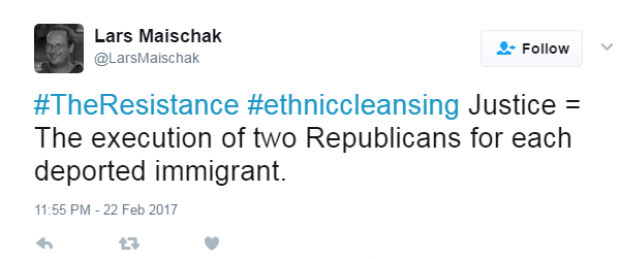






 Syria
Syria The ideology of Soviet Fascism
The ideology of Soviet Fascism
 And the death of Cuba’s long-time dictator gives hope that the people of that island nation may soon escape
And the death of Cuba’s long-time dictator gives hope that the people of that island nation may soon escape  As you can see, this is an area where Western Europe
As you can see, this is an area where Western Europe  Indeed, an average ranking of 89 means that most Eastern European nations are in the bottom half of the world.
Indeed, an average ranking of 89 means that most Eastern European nations are in the bottom half of the world.


